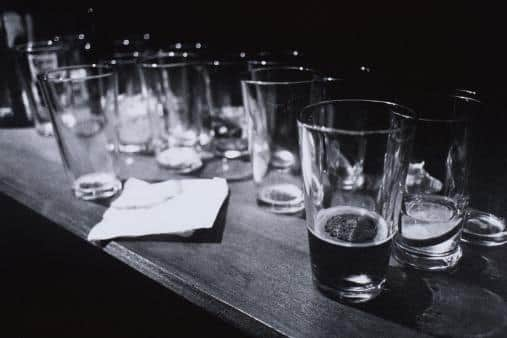Catherine Salmond: We must shake off the jokes and deal with Scotland’s alcohol problems
Along with deep fried haggis suppers and rain, booze would be high up on the list of things most people stereotypically associate with our nation.
Unfortunately, the saturated Scot is not a stereotype. We have long been a country of heavy drinkers and the statistics are not showing any change.
Advertisement
Hide AdAdvertisement
Hide AdAlcohol related deaths rose in 2020 and in 2021, with 1,245 people at the latest count having lost their lives.


The figure is only 88 fewer than Scotland’s recent drug deaths.
Today, Dani Garavelli looks at how the pandemic has changed many people’s drinking habits, with lots of Scots choosing to go healthy and focus on themselves by cutting down or giving up drink for good.
Yet for others, on the extreme level of what one medic has termed a “polarisation” in pandemic drinking habits, time alone, away from others, off work, led to increased consumption.
New routines meant new habits and drinking more slotted into them easily. There were no limits on measures in pubs as all alcohol was being bought on the weekly shop – much more cheaply and with no restriction.
It is certainly true that getting drunk in Scotland is, in the main, socially acceptable and encouraged by many. We all know that.
As editor of a Sunday newspaper, my Friday and Saturday nights are sober affairs on account of early starts and late finishes. I cannot cope with hangovers and have no interest in operating in first gear.
Some of my friends still struggle with the idea that I cannot – or choose not to – overindulge at the weekends and are often encouraging me to head out to do exactly that with them on a rare weekend off.
Advertisement
Hide AdAdvertisement
Hide AdIt is lovely to be wanted on a drunken night out, but this Scottish way of “encouraging” people to drink makes it difficult for those who really need to stop.
There is a very important discussion needed in Scotland about our relationship with drink. The statistics are concerning and experts are calling for change.
They need to be listened to if we are ever going to break the cycle of what – of course – can be harmless for many people but deadly for countless others.
Catherine Salmond is editor of Scotland on Sunday
Comments
Want to join the conversation? Please or to comment on this article.